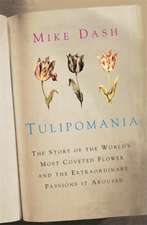Weimar Publics: Spektrum, Publications of the German Studies Association
Editat de Kerstin Barndt, Kathleen Canning, Kristin McGuireen Limba Engleză Hardback – 17 aug 2010
Preț: 838.75 lei
Preț vechi: 1089.28 lei
-23% Nou
Puncte Express: 1258
Preț estimativ în valută:
160.51€ • 166.63$ • 133.84£
160.51€ • 166.63$ • 133.84£
Carte tipărită la comandă
Livrare economică 22 martie-05 aprilie
Preluare comenzi: 021 569.72.76
Specificații
ISBN-13: 9781845456894
ISBN-10: 1845456890
Pagini: 420
Dimensiuni: 156 x 234 x 24 mm
Greutate: 0.77 kg
Ediția:New.
Editura: BERGHAHN BOOKS INC
Seria Spektrum, Publications of the German Studies Association
ISBN-10: 1845456890
Pagini: 420
Dimensiuni: 156 x 234 x 24 mm
Greutate: 0.77 kg
Ediția:New.
Editura: BERGHAHN BOOKS INC
Seria Spektrum, Publications of the German Studies Association
Cuprins
List of Illustrations Preface List of Contributors Introduction Kathleen Canning Part I. Defeat and the Legacy of War Chapter 1. The Return of the Undead: Weimar Cinema and the Great War Anton Kaes Chapter 2. The Work of Art and the Problem of Politics in Berlin Dada Brigid Doherty Chapter 3. The Secret History of Photomontage: on the Origins of the Composite Form and the Weimar Photomontages of Marianne Brandt Elizabeth Otto Part II. New Citizens/New Subjectivities Chapter 4. Mother, Citizens, and Consumers. Female Readers in Weimar Germany Kerstin Barndt Chapter 5. Claiming Citizenship: Suffrage and Subjectivity in Germany after the First World War Kathleen Canning Chapter 6. Feminist Politics beyond the Reichstag: A Radical Vision of Reform in the Weimar Republic Kristin McGuire Chapter 7. Producing Jews: Maternity, Eugenics, and the Embodiment of the Jewish Subject Sharon Gillerman Part III. Symbols, Rituals and Discourses of Democracy Chapter 8. Reforming the Reich: Democratic Symbols and Rituals in the Weimar Republic Manuela Achilles Chapter 9. High Expectations - Deep Disappointment: Structures of the Public Perception of Politics in the Weimar Republic Thomas Mergel Chapter 10. Contested Narratives of the Weimar Republic: The Case of the Kutisker-Barmat ScandalA" Martin Geyer Chapter 11. Political Violence, Contested Public Space, and Reasserted Masculinity in Weimar Germany Dirk Schumann Part IV. Publics, Publicity and Mass Culture Chapter 12. A Self-Representation of the MassesA": Siegfried Kracauer's Curious Americanism Miriam Hansen Chapter 13. Neither Masses Nor Individuals. Representations of the Collective in Inter-War German Culture Stefan Jonsson Chapter 14. Cultural Capital in Decline:Inflation and the Distress of Intellectuals Bernd Widdig Part V: Weimar Topographies Chapter 15. Defining the Nation in Crisis: Citizenship Policy in the Early Weimar Republic Annemarie Sammartino Chapter 16. Gender and Colonial Politics after the Versailles Treaty Lora Wildenthal Chapter 17. The Economy of Experience in Weimar Germany Peter Fritzsche

















